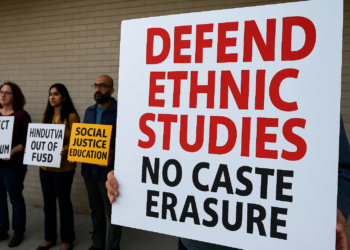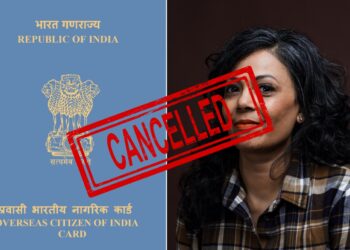India saw the highest level of social hostilities involving religion during the 2020 coronavirus pandemic, according to a report released on Tuesday, by the fact tank Pew Research Center.
According to the fact tank’s 13th annual study of limitations impacting the practice of religion, India fared the worst in the Social Hostilities Index in 2020 with a score of 9.4 out of 10, worse than its neighbours Pakistan (7.5) and Afghanistan (8.0).
The Social Hostilities Index is calculated by the centre based on 13 questions that assess hostilities both between and within religious communities, including sectarian or mob violence, crimes motivated by prejudice against religion, physical conflict over conversions, harassment for wearing religious clothing, and other forms of intimidation and violence related to religion.
The fact tank mentioned the Union Ministry of Home Affairs’ decision to quarantine 900 members of the Islamic organisation Tablighi Jamaat after it staged a religious gathering at the Nizamuddin Markaz in Delhi in early 2020 in its report.
The Tablighi Jamaat congregation was cited as the cause of thousands of coronavirus cases across the nation, leading to the closure of the mosque on March 31, 2020. Through a wave of commercial boycotts and hate speech, the incident revived the stigma against Muslims.
Additionally, a number of lawsuits were brought up against persons who attended the gathering for various reasons, including alleged visa violations or disobedience to the Covid-19 regulations of the government. Courts have, however, dismissed the majority of FIRs and cleared the individuals.
In addition, the Pew Research Center survey identified India as one of the three nations, along with Yemen and Indonesia, where pandemic-related killings of religious minorities occurred in 2020. It made mention of the two Christians who died in Tamil Nadu following reports that they had been assaulted by police while being held on suspicion of breaking coronavirus regulations.
On June 19, 2020, Jayaraj and his son Bennix were detained for interrogation because they had kept their mobile accessory store open past the coronavirus lockdown’s allotted hours. Following that, they were taken to the Kovilpatti sub-jail. Bennix reported having breathing issues on June 22 and was subsequently sent to a hospital run by the local government. Later, he passed away there. The next day, his father passed away.
According to the Central Bureau of Investigation’s charge sheet, Jayaraj and Bennix were assaulted so severely that blood stained the walls. They were required to wash their garments in the blood. The two were subjected to “several rounds of brutal torture,” the CBI added.
With a score of 5.8 on the Government Restrictions Index, the second criterion on which the report is based, India did slightly better. According to the survey, China got the highest index score (9.3) for governmental limitations.
The Government Restrictions Index measures whether governments impose restrictions on religious behaviours or beliefs based on 20 questions. The issues raised concern how far governments go in attempting to regulate religious organisations or persons, forbid conversions, restrict preaching, or obstruct religious affiliation by measures like registration requirements and penalties.
Recently, legislation forbidding forced conversions and “love jihad” have been passed in several Bharatiya Janata Party-ruled states, including Gujarat, Madhya Pradesh, and Uttar Pradesh.
The phrase has been used by Hindutva organisations to promote the belief that Muslim men entice Hindu women into marriage with the intention of pressing the brides to convert to Islam.
These regulations are strict, and in Madhya Pradesh, the sentence for forced religious conversions for marriage has been increased from five to ten years in prison. The Bill in Himachal Pradesh prohibits converts from receiving any benefits related to their parent’s religion.
The US Department of State’s annual reports on religious freedom and the US Commission on International Religious Freedom, as well as databases and reports from European and UN agencies and a number of independent, non-governmental organisations, served as the foundation for the Pew Research Center’s report.
The fact tank used media stories on Covid-19 written by organisations like think tanks and university research centres to support these sources.











